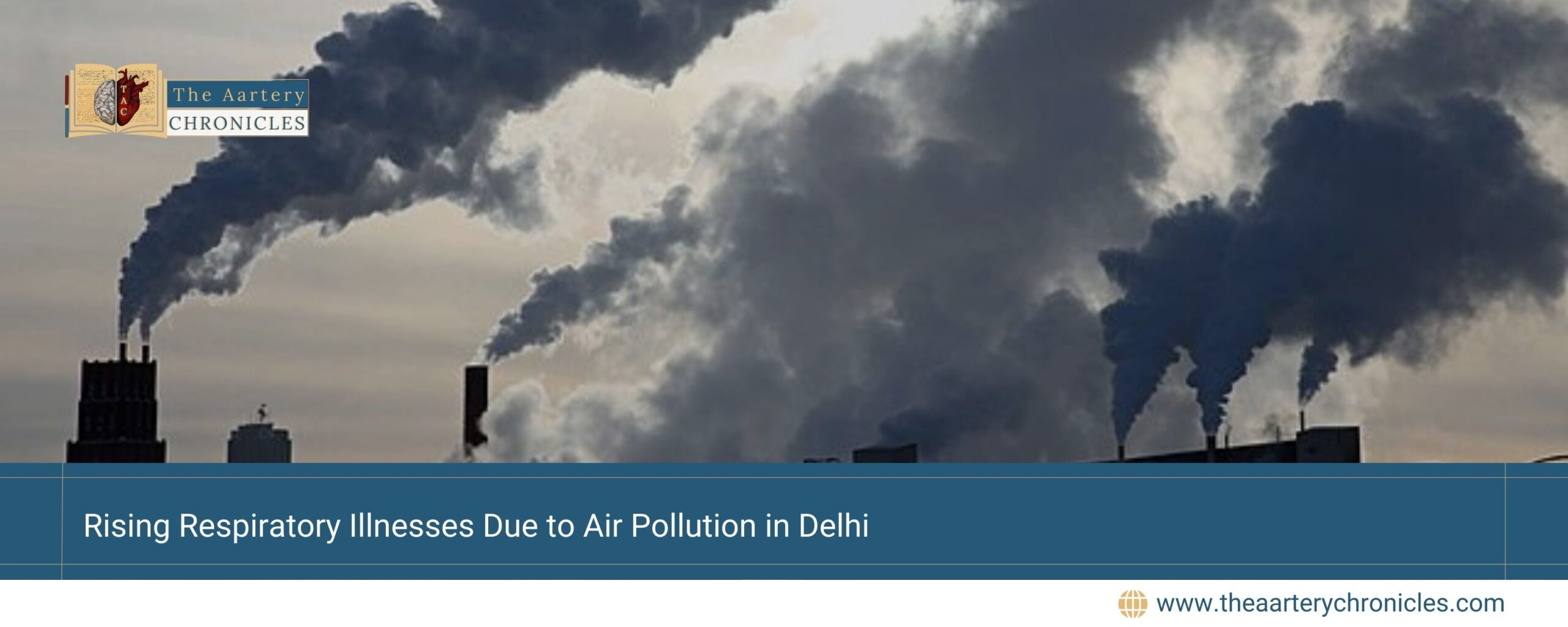

Rising Respiratory Illnesses Due to Air Pollution in Delhi
Doctors Report 5% Increase in Respiratory Issues
Delhi has seen a surge in respiratory illnesses due to worsening air pollution. Medical experts report a 10-15% rise in cases, with respiratory diseases being observed earlier than usual this year. Dr. Rajesh Chawla, a senior consultant at Indraprastha Apollo Hospital, highlighted the early increase in patients suffering from cough, breathing difficulties, and other respiratory symptoms, typically seen in November.
"Red Light on, Gaadi Off" Campaign Launched
As pollution levels spike, Delhi has initiated its “Red Light On, Gaadi Off” campaign to combat air pollution. Citizens are encouraged to switch off their vehicles at traffic signals to reduce emissions.
Political Reaction: "Delhi Has Become a Gas Chamber"
BJP leader Shehzad Poonawalla expressed concern over the rising pollution, referring to Delhi as a “gas chamber.” His comments reflect the widespread alarm surrounding the city’s deteriorating air quality.
Bhutan Weighs in on India's Pollution Problem
Prime Minister of Bhutan, Tshering Tobgay, emphasized the cross-border impact of India’s air pollution, stating that as India takes steps to reduce pollution, it will benefit neighbouring countries like Bhutan.
Air Quality Reaches 'Very Poor' Category
Delhi’s air quality has plummeted to dangerous levels. On Tuesday morning, the Air Quality Index (AQI) hit 385, indicating ‘Very Poor’ air, according to the Central Pollution Control Board (CPCB). A thick fog was reported across various areas, such as Anand Vihar and Kalkaji, contributing to health risks for residents.
Health Effects of Pollution: A Growing Concern
Pollution exposure is a serious health risk. An AQI in the ‘Severe’ category can harm even healthy individuals, while those with pre-existing conditions face greater dangers. Long-term exposure to air pollution can result in chronic respiratory diseases, heart problems, and reduced lung function.
Hospitals Respond to Rising Cases
Hospitals in Delhi are witnessing an increase in patients reporting cough, watery eyes, and other pollution-related symptoms. Ram Manohar Lohia Hospital has set up special outpatient services for these patients, operating every Monday from 2 to 4 pm.
Exert Insights: Air Pollution's Long Term Impact
Dr. Kuldeep Kumar Grover from CK Birla Hospital highlighted the severe health consequences of long-term air pollution exposure, including respiratory and heart diseases, lower life expectancy, and even mental health issues like anxiety and depression. Pollutants like nitrogen dioxide (NO₂) and particulate matter (PM2.5) can lead to both physical and emotional distress.
Are We Doing Enough to Fight Air Pollution?
Despite awareness of the dangers of pollution, efforts to protect against it are still lacking. Dr. Pratibha Dogra from Marengo Asia Hospital points out that while some people use masks and air purifiers, long-term solutions like emission reductions, public transportation use, and tree planting are not being adopted on a wide scale. Children and the elderly remain particularly vulnerable, making it crucial to take preventive measures such as using N95 masks, staying indoors during high pollution periods, and maintaining a healthy diet to boost immunity.
Pollution Hotspots Identified in Delhi
Delhi has identified 13 key areas as pollution hotspots, including Narela, Bawana, and Anand Vihar. These regions experience high levels of particulate matter (PM10 and PM2.5), posing a significant threat to public health. The Department of Environment has laid out plans to address these hotspots, including removing garbage dumps, fixing road damages, and enforcing rules against burning waste.
How to Protect Yourself from Pollution
To stay safe during high pollution periods:
- Stay indoors, especially during peak pollution times.
- Keep windows and doors shut.
- Use air purifiers if possible.
- Wear an N95 mask when stepping outside.
- Avoid outdoor exercise or strenuous activity.
- Drink lots of water to help eliminate pollutants.
- Use a saline nasal spray to clear airways.
- Monitor air quality levels regularly and take precautions when necessary.
Taking these steps can help reduce the health risks associated with Delhi’s severe air pollution.
Source: Inputs from various media Sources

Priya Bairagi
I’m a pharmacist with a strong background in health sciences. I hold a BSc from Delhi University and a pharmacy degree from PDM University. I write articles and daily health news while interviewing doctors to bring you the latest insights. In my free time, you’ll find me at the gym or lost in a sci-fi novel.








